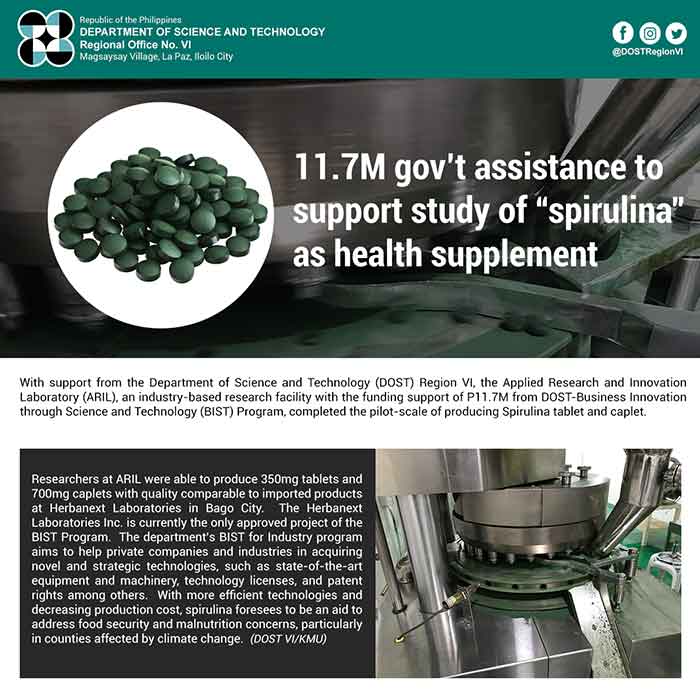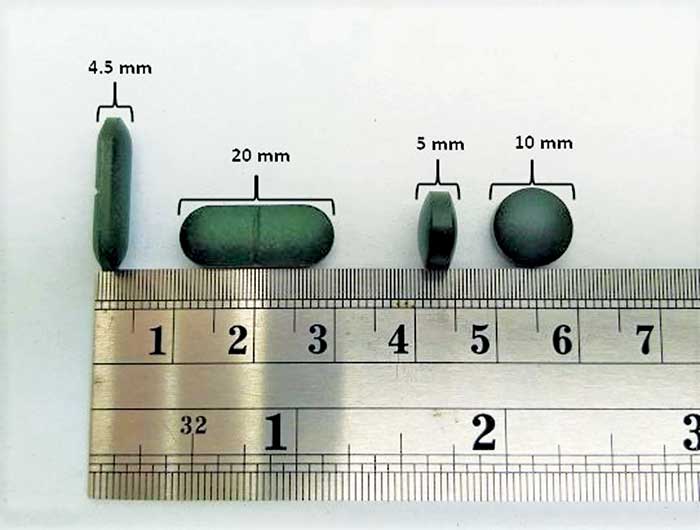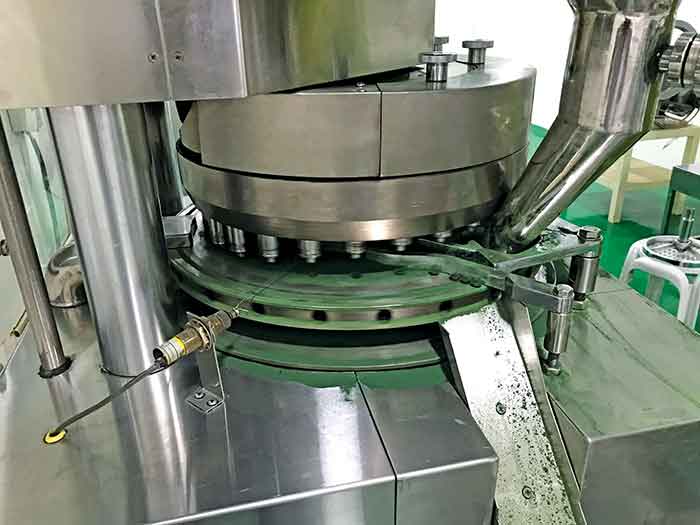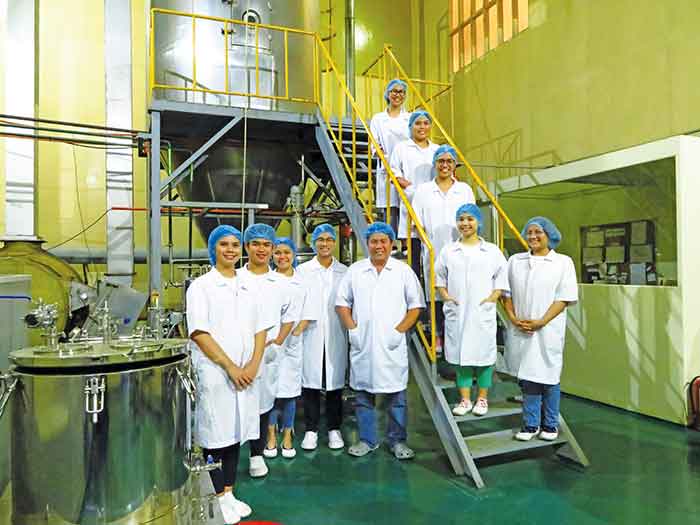
With support from the Department of Science and Technology (DOST) Region VI, the Applied Research and Innovation Laboratory (ARIL), an industry-based research facility with the funding support of P11.7M from DOST-Business Innovation through Science and Technology (BIST) Program, completed the pilot-scale of producing Spirulina tablet and caplet.

Grows in both fresh and saltwater, Spirulina is a type of cyanobacteria, a family of single-celled microbes that are often referred to as blue-green algae. This organic and nutrient-rich dietary supplement contains around 60% protein, 24% carbohydrates, and 8% fat.
In recent years, Spirulina tablets have become a popular nutraceutical product for its many health benefits such as the ability to modulate immune function and exhibit anti-inflammatory properties by inhibiting the release of histamine by mast cells. Also, some randomized controlled trials indicate anticancer, antiviral, and antiallergic effects.

Interestingly, spirulina cultivation in space is also being seriously considered as dietary support in long-term missions to Mars.
Recently, researchers at ARIL were able to produce 350mg tablets and 700mg caplets with quality comparable to imported products at Herbanext Laboratories in Bago City. The Herbanext Laboratories Inc. is currently the only approved project of the BIST Program. The department’s BIST for Industry program aims to help private companies and industries in acquiring novel and strategic technologies, such as state-of-the-art equipment and machinery, technology licenses, and patent rights among others. With more efficient technologies and decreasing production cost, spirulina foresees to be an aid to address food security and malnutrition concerns, particularly in counties affected by climate change.

Currently, DOST VI assists the facility in the development of a supply chain and a processing facility that will catalyze new high-value crops for aquaculture particularly in the Western Visayas region which have been traditionally a hub of progressive aquaculture technologies. The ARIL also studies other algal and seaweed species for development into health products. (JJMoleño/SSalazar/DOST VI-KMU)




















